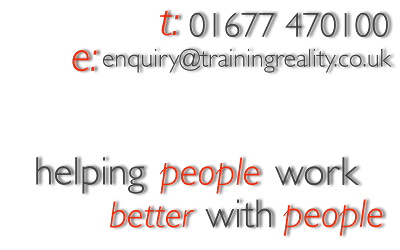Please press (at least!) one of these.
It costs you nothing, and (possibly) helps us spread the word!
The pleasure of principles
Friday, 10 July 2009
You may already have been on our principles page (if not, take a look here later), and it is probably our most important page. We firmly believe in doing the right thing, rather than following rules.
Of course, rules are important and useful. However, a crucial challenge is to take time to question their purpose rather than being blindly accepting of them. I would guess that a large proportion of rules were initially instituted for very good reasons, but have a strong conviction that, by having them written down, there is a real danger of the positive rationale behind them being subsumed by a strict, inflexible application of the written word.
An obvious example of this is speed limits. The principle behind them is sound - a desire to protect people from themselves and each other by ensuring that speeds and limited to an appropriate rate for the particular environment. The problem with them (as demonstrated by the quantity of vitriol regarding speed cameras) is that the execution of the rules is seen by many to no longer fit with the principles. There is a 30mph limit past our local primary school, but I would never dream of driving that fast - the school and the road simply are not suitable. But, the rules allow it. Equally, on a clear motorway on a clear dry day, I see nothing wrong with a skilled driver driving at 80mph. But the rules don’t allow that.
Whether or not you agree with this particular example, I’m certain that in everyone’s life, there are examples for them of where the strict interpretation of the rules appears to be at odds with the principles behind them.
This brings me on to the real positive I experienced recently, in my personal rather than professional life. I was talking to an NHS consultant, and, as anyone with experience of the NHS (or most other large organisations) knows, the sheer complexity of the rules appears unending. I was requesting that something was done outside the normal process, and he explained perfectly properly that this would not be allowed, he would get into trouble for even suggesting it, and that the paper trail left behind would ensure that it didn’t happen anyway.
But then he smiled. Of course, he said, that doesn’t mean it can’t be done - I know why you want it done, and that’s absolutely right. We just need to do it a bit differently...
And he did. I’ll be forever grateful for this, and he has my utmost admiration for putting doing the right thing above obeying the rules.
The challenges I would pose here are to approach rules from two different perspectives:
1) Firstly, try to understand why they are there, and what they are trying to achieve. This will put them into context and help with step two, which is
2) Secondly, if the rules are standing in the way of something that you firmly believe is right, work out a way of doing what is right, without contravening the principles behind the rules.
With my NHS example, the rule was more than likely instituted as a cost-saving, time-saving measure. Together with the consultant, we worked out how to minimise the use of resources whilst still getting the job done. And it’s worked.
In your organisation, or in your life, what are those things that you would love to change but see rules as preventing you from doing so. Challenge those rules, not in an anarchist fashion, but with rationality and respect for the underlying principles, and you will be surprised at how amazed you will be.
Please press (at least!) one of these.
It costs you nothing, and (possibly) helps us spread the word!





